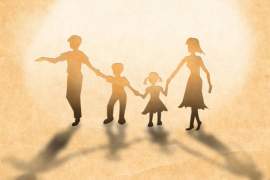
Understanding Parenting

Family Forms
What is parenting and what are the Laws and Government Programs attached?
Parenting is the process of supporting and promoting the emotional, social, physical, and intellectual development of a child from infancy to adulthood.
Parenting is a fundamental family role that results from a couple having a child or parents or individuals adopting a child. Parenting is the general activity required when raising a child; as a result of this definition, parenting is not defined as the biological relationship between parent and child.
There are an assortment of strategies and practices that constantly change as the child matures and grows older. Although parenting techniques typically vary on a case by case basis the local government and the federal government of the United States will enforce basic human rights laws on parents. For example, it is illegal to neglect a child, meaning refrain from feeding or clothing the youth. Additionally, any form of abuse, whether it be physical, emotional, or verbal will be viewed and punishable if the case is brought to the authorities.
In addition to the general human rights implications attached to parenting, there are government programs that are intended to help low-income individuals or single parents raise children.
Child support is a fundamental aspect of parenting; typically this issue arises when parents split and the custodial rights of the child are delivered to one parent in the relationship. To adequately raise the child, support in a financial sense will be maintained by the non-custodial parent. Furthermore, government programs, grants, and accessible loans are also accessible by single mothers and those in need of support.
NEXT: What Is Single Mothers



















